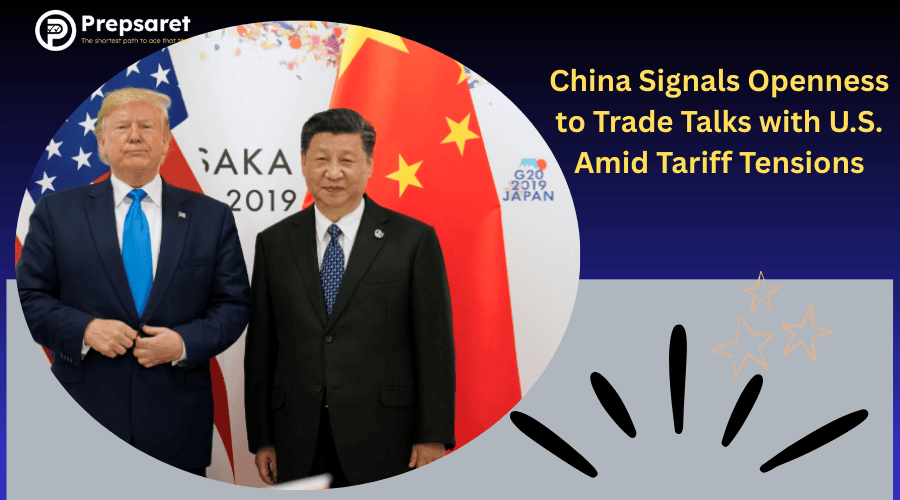Key Takeaways:
- China is considering U.S. proposals to start trade talks amid escalating tariffs.
- Beijing insists the U.S. must first show sincerity by removing unilateral tariffs.
- U.S. officials remain hopeful but acknowledge a long road to a possible trade deal.
BEIJING, May 2, 2025 — China announced on Friday it is evaluating recent overtures from the United States to engage in trade negotiations, a potential step toward easing tensions between the world’s two largest economies. The statement from China’s Ministry of Commerce reflects a cautious shift in tone amid the deepening tariff war launched by President Donald Trump.
“The U.S. has recently conveyed its interest in beginning trade discussions through various channels,” a spokesperson from the ministry said. “China is currently assessing this communication,” the official added, while reiterating the need for the U.S. to first remove its unilateral tariff hikes to demonstrate sincerity.
President Trump imposed tariffs as high as 145% on a range of Chinese imports in April, citing concerns over the trade deficit and intellectual property issues. In retaliation, China levied 125% duties on American goods and warned that negotiations would only begin if Washington retracted its punitive measures.
Conditions and Complexities
Chinese officials emphasized that any negotiation must be based on “sincerity and mutual respect,” with one ministry statement warning that using talks as a guise for coercion would be unacceptable. “If it’s a fight, we will see it through to the end. If it’s talks, the door is open,” the spokesperson said.
Despite strong rhetoric, analysts noted a subtle opening, with some state-linked media in China describing the evaluation as a diplomatic window. U.S. Secretary of State Marco Rubio and Treasury Secretary Scott Bessent both indicated in media appearances that they believe China is interested in de-escalation, with Bessent stating, “We need to de-escalate first, then focus on a broader deal.”
The tariff standoff has triggered significant disruptions. Chinese factory output in April saw its steepest decline in over a year, while U.S. imports from China have plummeted. Companies like Apple reported major supply chain challenges, with Apple citing a $900 million impact due to the tariffs.
Markets responded with cautious optimism. The offshore yuan strengthened slightly, and Hong Kong’s Hang Seng index rose 1.6% following the news.
While trade talks are not yet confirmed, both sides appear to be laying the groundwork for potential discussions. Analysts warn, however, that any agreement will likely involve a protracted and complex process.

